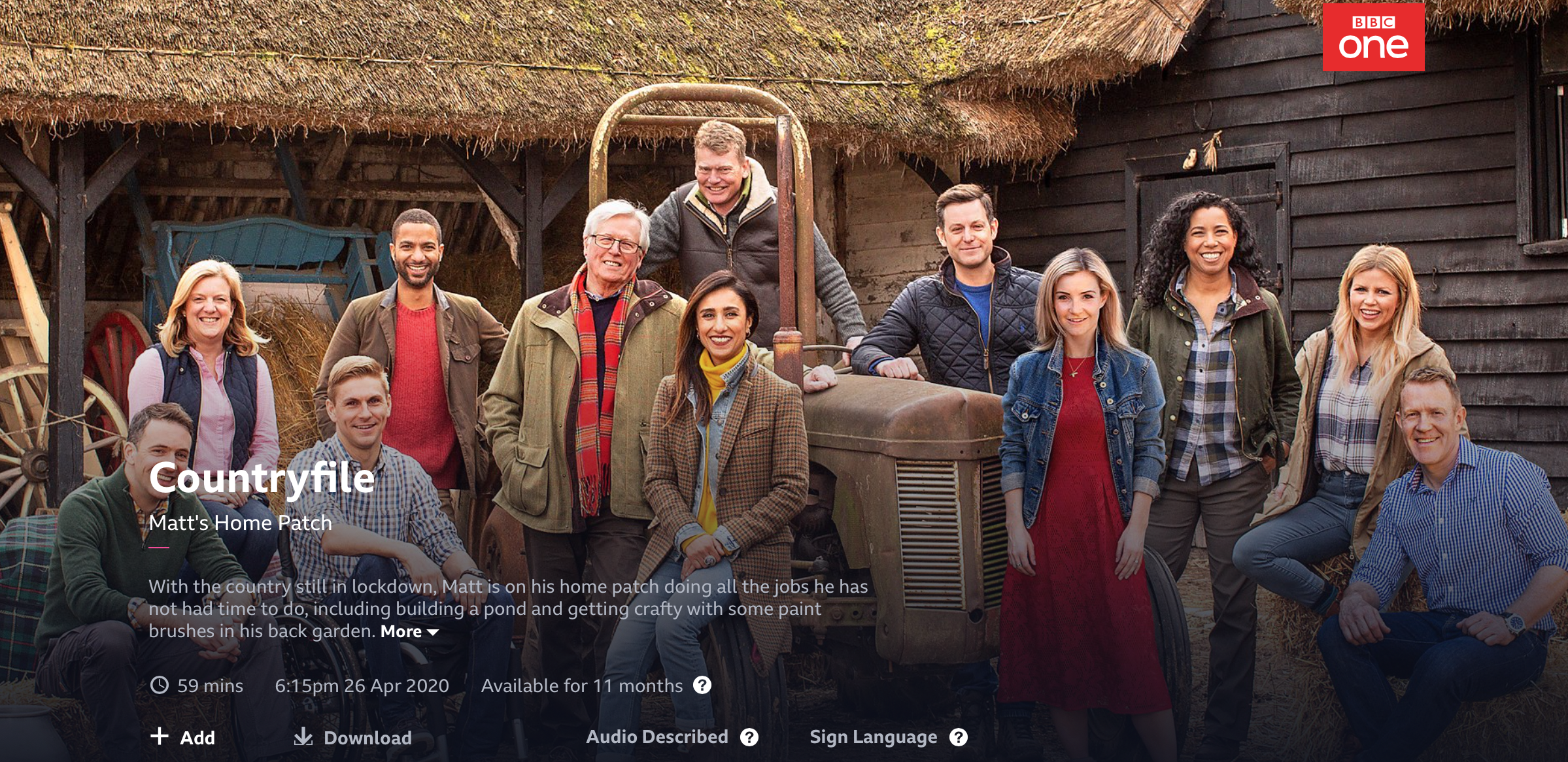
Times of stress often accelerate technological advances.
The first world war spread the internal combustion engine. In 1914, there were no more than a few dozen cars in the US. Armies moved by horse. By the time the war was over, there were not only cars ,there were airplanes. The needs of hte war accelerated the development of the automobile and airplane by a good 50 years.
The Second World War did the same for telecommunications, radar, medicine.
The Cold War drove microelectronics and comuters as well as the Internet.
So far, the Covid-19 Crisis seems to have vastly accelerated bio science, but it has also done something else - perhaps a bit more mundane, but of equal interest.
This morning, we watched Countryfile, the now very popular BBC series about rural life in the UK.
Since we live in rural Britain, when we are not in urban NYC, we like the show, and we are not alone. It is one of the most popular programs (or programmes) in Britain.
But this week, it was different.
Becuase of social distancing, the show, which usually travels all over Britain with a massive crew and its hosts, still had to be put on. So the producers had each of the hosts shoot stories of their own lives at home, as they isolated.
The hosts shot their own stories - they or their families.
And they did it mostly with iPhones,.
The results, I am delighted to say, were indistinguishable from the regular, and I would say, vastly more expensive programmes we have been watching for years.
This was no Zoom Interviews and Skype messes.
This was a first class production, done by the people who are actually telling the stories.
Ironically, another of Lisa's favorite shows, Gardner's World was done in exaclty the same way this week. Host and presenter Monty Don shot the who thing himself, at his home and in his home garderns.
Cut aways, close ups, tracking shots and perfect audio.
This tells me something - and it should tell the producers at The BBC something as well.
The technolgy to shoot and produce broadcast quality programs - top broadcast quality programs by the way, is already in their hands - and in the hands of their presenters.
These people already know what a story looks like.
They have been doing them for years.
When the Virus Crisis is over, a lot of things are going to remain.
I should expect, based on the cost savings alone, that this will be one of them.


